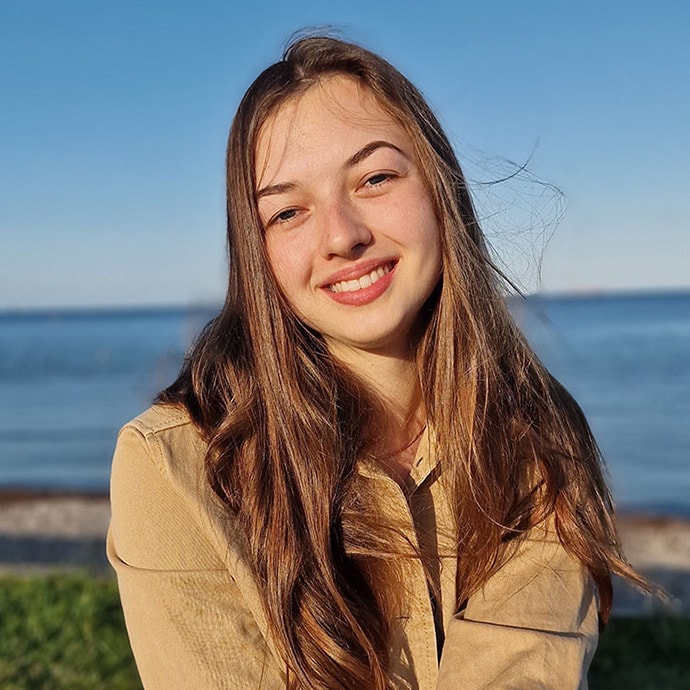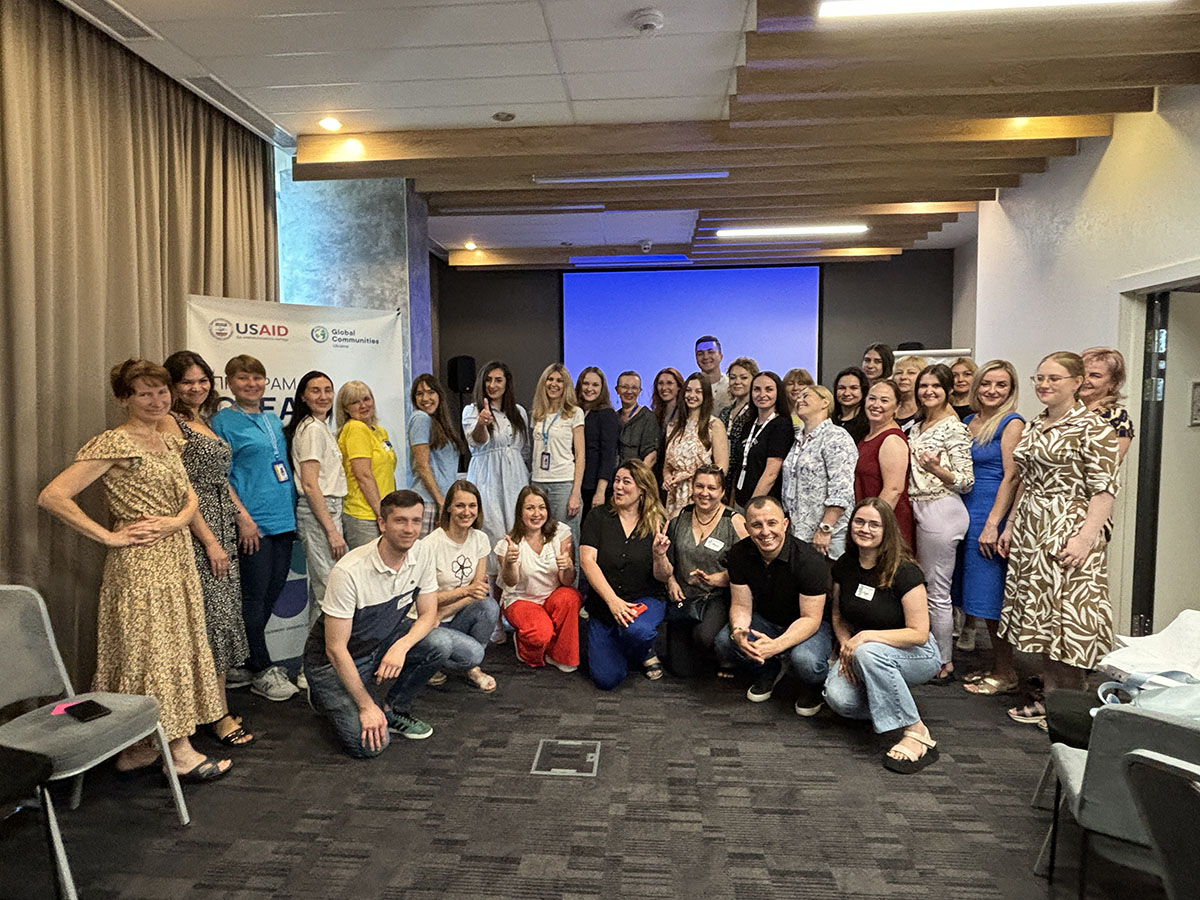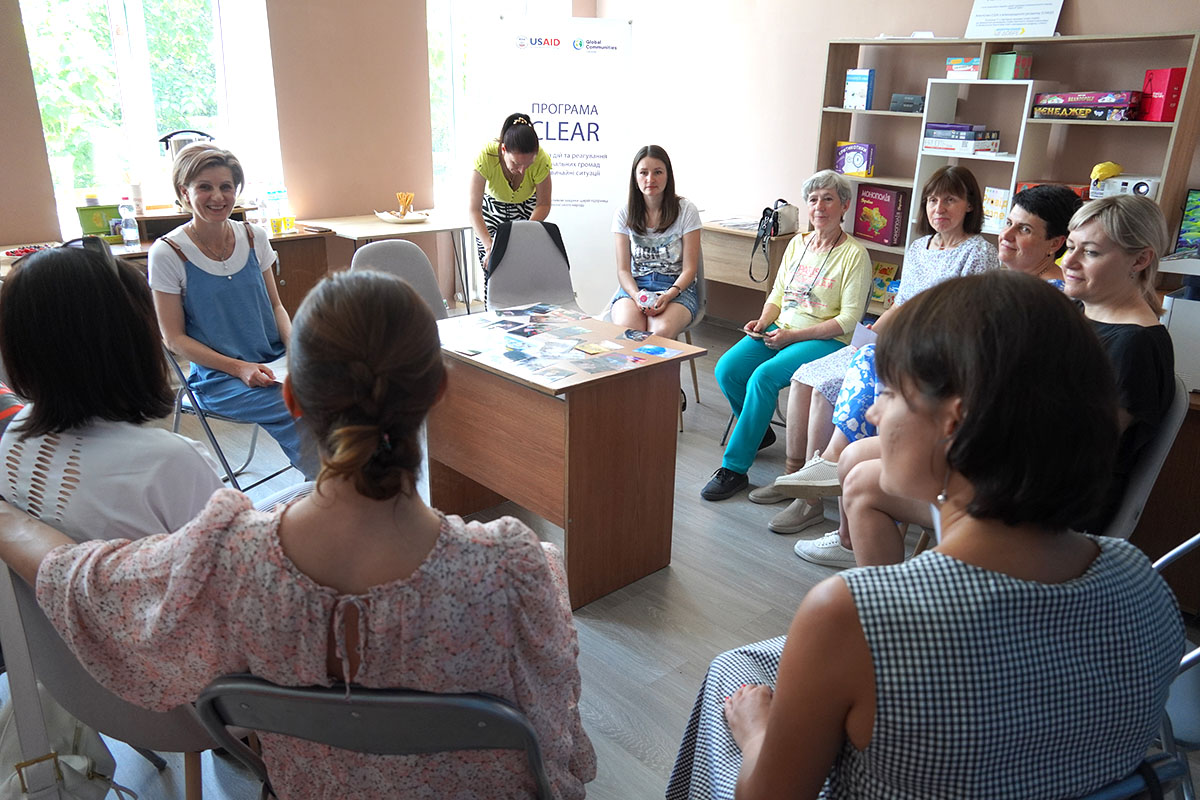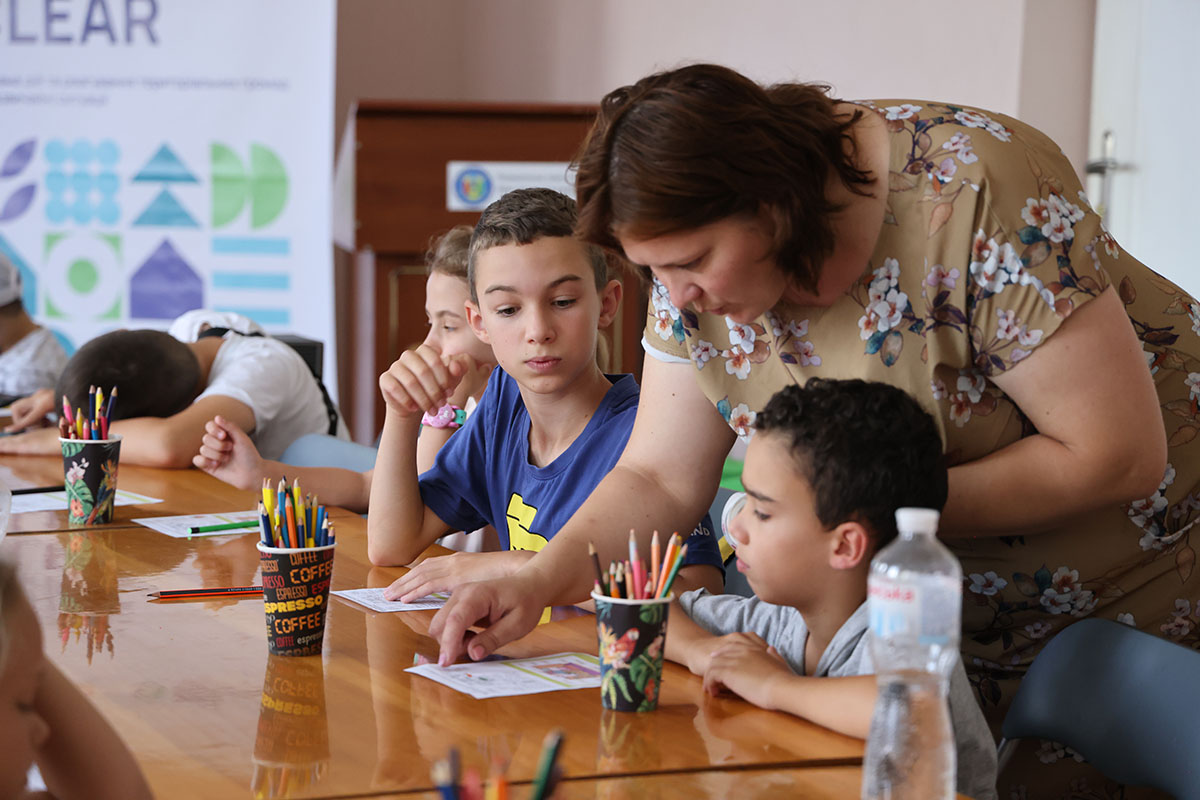By Amber Cortes

Anastasiia Zhelezko. Photo: Global Communities
Anastasiia Zhelezko had planned her humanitarian career since 3rd year of her Bachelor’s degree. She was finishing her degree at Taras Shevchenko National University of Kyiv in 2022, already with the intention to work in the humanitarian field, when Russia invaded Ukraine, and everything happened faster than she thought.
“I guess the invasion just sped up my plans,” Zhelezko explains.
She started working in Chernihiv, her native region, with the Danish Refugee Council, assessing the damages of the houses of the conflict-affected population.
“Especially in the beginning, it did affect me,” Zhelezko says. “Obviously, I’ve heard lots of stories of what they had been through. These were terrible stories.”
Despite the emotional challenges, Zhelezko felt she was in the right place.
“I realized that currently, the history of Ukraine is being created, and if I want to contribute to it, working in the humanitarian sphere is probably one of the best options to help address people’s needs.”
Since March 2024, Zhelezko has been doing just that by overseeing partner implementation of GBV programming for Global Communities, an organization that works at the intersection of humanitarian assistance and sustainable development to save lives, advance equity and secure strong futures. Global Communities implements several projects in Ukraine, including the Community-Led Emergency Action and Response (CLEAR) program, which Zhelezko works on. CLEAR supports local organizations in addressing urgent protection, shelter, water, sanitation and hygiene needs of conflict-affected populations. Child protection, gender-based violence (GBV) prevention and response, and psychosocial support are among CLEAR’s key interventions. There’s also the Chernihiv Public Committee for Human Rights Protection, which provides legal consultations and support to women who have experienced GBV, especially domestic violence.

Global Communities hosts the Protection School for local partners in Ukraine. Photo: Global Communities
CLEAR uses a localization approach in humanitarian action. This includes implementation through local partners (rather than direct service provision) and strengthening the capacity of local organizations, including small community-based groups, to deliver emergency response.
In her role, Anastasiia provides direct support to GC partners in implementing their activity plans, engages in distribution of Dignity and Recreational Kits for vulnerable populations, as well as maintains working relations with other relevant stakeholders, such as Danish Refugee Council, Clusters, UN Agencies, etc. She also helps facilitate activities within other Protection subsectors at GC, such as PSS and CP.
Global Communities supports these partners by providing technical expertise, such as training in various fields (for example, in July a Protection School was conducted outlining core concepts of GBV, CP and PSS), recommendations on any mundane activities and how to make them more efficient, supervisions, as well as familiarizes them with international standards in above-mentioned Protection sub-sectors (for instance, Minimum Standards for Gender-based Violence in Emergencies Programming, Case Management SOP) amongst other activities to increase the capacities of local partners and enable them become self-sufficient when donors step out of Ukraine.
One of the organizations that Zhelezko supports is Chernihiv European, which hosts events for children with disabilities, who are often underserved by state services. The organization works both with internally displaced children and children from host communities. Another partner, Polissia Foundation for International and Regional Studies (PFIRS), helps elderly people works to improve information literacy of the elderly in local communities by teaching them how to use laptops and smartphones, as well as the latest information technologies (i.e. government services apps, messengers, mobile banking, etc.), Google tools, online services (requesting document extracts, certificates, documents in Diia, etc.), as well as in safety against online scams, etc.

Psychosocial counselling sessions for internally displaced women at the Khotyn Public Library. Photo: Global Communities
Within all the chaos of conflict, it’s the astonishing work of what CLEAR’s partners are able to accomplish under such intense circumstances that keeps Zhelezko inspired.
“There were cases where women were living with perpetrators and suffered a lot. They’ve been through horrible moments in their lives. Thanks to Chernihiv Public Committee for Human Rights Protection, our local partner, they were able to take their kids with them to a safe space, find sources of income, get alimony from their husbands, and start their lives from the scratch,” says Zhelezko.
“The quality of their lives has dramatically improved, thanks to legal consultations and the case management services of our partner.”
Needless to say, working in a conflict zone can make long-term planning difficult. Programs must constantly adapt to new conditions.
“The situation is always changing,” says Zhelezko. “We write technical proposals for the next six months, but the context can change dramatically over this time.”
As if the complexity of providing aid in a war-torn country wasn’t enough, there are also sociocultural dynamics at work.
“There are lots of stereotypical beliefs embedded in our culture, because it’s a deeply patriarchal society,” says Zhelezko. “There are gender stereotypes in all spheres: in education, in health, politics…you name it.”
Despite the fact that female labor participation in Ukraine is at an all-time high of 47%, women face challenges balancing new employment opportunities with traditional roles at home. As more men become conscripted, the pressure on women to be both breadwinners and caretakers increases.
“The majority of domestic work is still being performed by women,” Zhelezko says. “It didn’t just disappear.”
In Ukraine, women and children represent the majority among displaced people–more than 90% of refugees and more than 60% of internally displaced persons (IDPs) are women and children.
“These women are not a homogenous group, and accordingly, we also have to recognize that their experiences and needs are different.”
Women and girls with different sexual orientations, religion, health conditions, ages have different needs and aspirations at different stages of their life.
Nowadays, says Zhelezko, women in Ukraine are opening businesses at an astonishing rate and taking up professions previously dominated by men. Global Communities has recently initiated a grant competition for micro and small businesses within the Economic Recovery and Market Systems (EMRS) component of the CLEAR project. The hope is that many women will benefit from this initiative.
“I just see our partners and us working relentlessly in this field and empowering women and making them believe they have enough inner strength and they can do just fine,” says Zhelezko.
Zhelezko believes that even in the worst of conditions, progress can be made towards an environment where women and girls can not only be safe, but thrive.
“Our work is not only about helping people address their needs, but also about being able to help them find hope to do things which they thought were unimaginable to them a few years ago.”

Khotyn Platform for the Development of Culture and Tourism hosts an English camp for children. Photo: Global Communities
To learn more about Global Communities’ work in Ukraine, explore their visual story, Governing in Crisis: Layering Decentralization Assistance and Emergency Response in Ukraine and read an interview with their Senior Protection Manager, Emily Galloway, Pass the Mic: Localizing Child Protection Interventions in Ukraine’s Humanitarian Context.